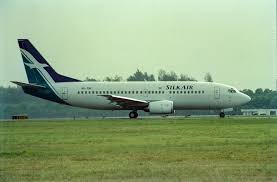The Future of Air Travel: Innovations in Flight Technology

Introduction
Flight has revolutionised the way we travel, connecting people and cultures across the globe. As the aviation industry faces challenges such as rising fuel costs, environmental concerns, and the aftermath of a global pandemic, innovations in flight technology are becoming more crucial than ever. Recent developments not only promise to enhance safety and efficiency but also aim to reduce the carbon footprint of air travel.
Recent Innovations
One of the most significant strides in flight technology is the ongoing development of electric and hybrid-electric aircraft. Companies like Airbus and Boeing are investing heavily in research to create planes powered by electric motors, significantly reducing greenhouse gas emissions. For instance, Airbus’ E-Fan X programme aims to introduce hybrid-electric technology into commercial aviation by the mid-2020s.
Another notable innovation is the introduction of sustainable aviation fuels (SAF). These fuels, derived from renewable resources such as waste oils and plant materials, can reduce lifecycle carbon emissions by up to 80% compared to traditional jet fuels. Major airlines, including British Airways and Delta, are beginning to incorporate SAF into their fuel mix, paving the way for a more sustainable future.
The Impact of Technology on Air Travel
Digital technology is also transforming the flight experience. The use of artificial intelligence (AI) and data analytics allows airlines to optimise flight routes and schedules, leading to improved punctuality and reduced fuel consumption. Moreover, contactless technology and biometric screening at airports make the boarding process smoother and safer for passengers.
Moreover, advancements in in-flight entertainment and connectivity are enhancing the passenger experience. High-speed internet access and personalised entertainment options redefine how we spend our time in the air, making long-haul flights more enjoyable.
Future Prospects
Looking ahead, the air travel industry is expected to undergo significant changes driven by these innovations. Experts predict that by 2030, we could see the first commercial electric flights, transforming regional travel and opening up new opportunities for eco-friendly tourism.
Furthermore, as airlines continue to focus on sustainability, regulatory bodies are likely to enforce stricter emissions targets. It is crucial for the industry to adapt proactively to these changes to remain viable and competitive.
Conclusion
Innovations in flight technology represent not only a path towards a more efficient and enjoyable travel experience but also a necessary response to the pressing environmental challenges facing our planet. As developments continue to unfold, both industry stakeholders and passengers can look forward to a transformative era in aviation, one that balances connectivity with sustainability.








